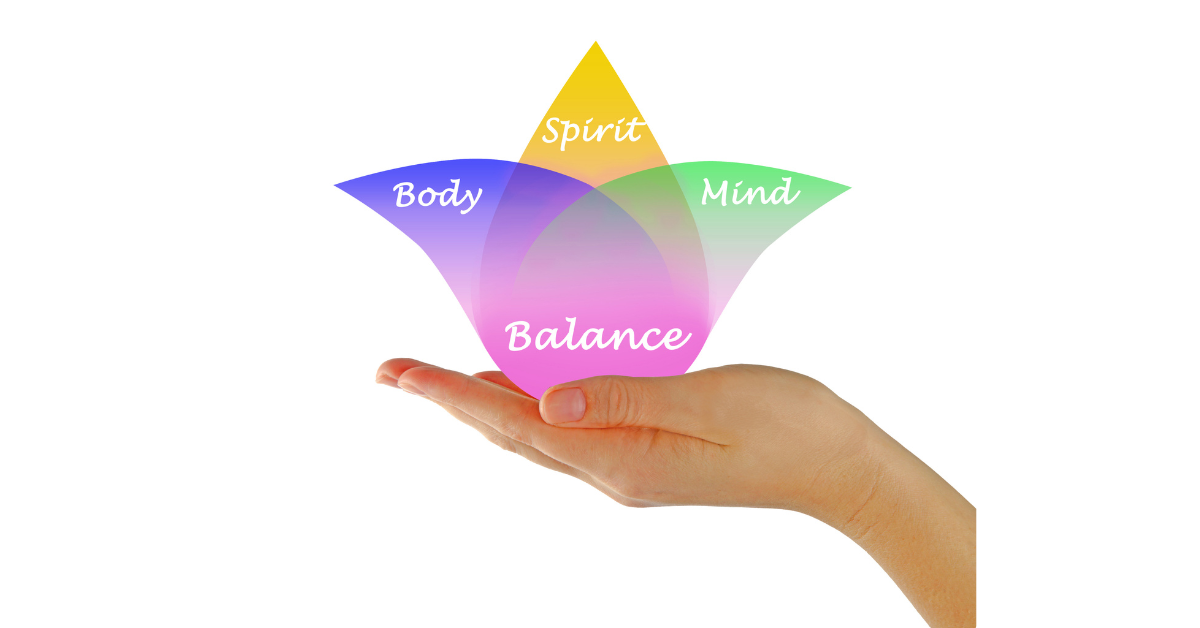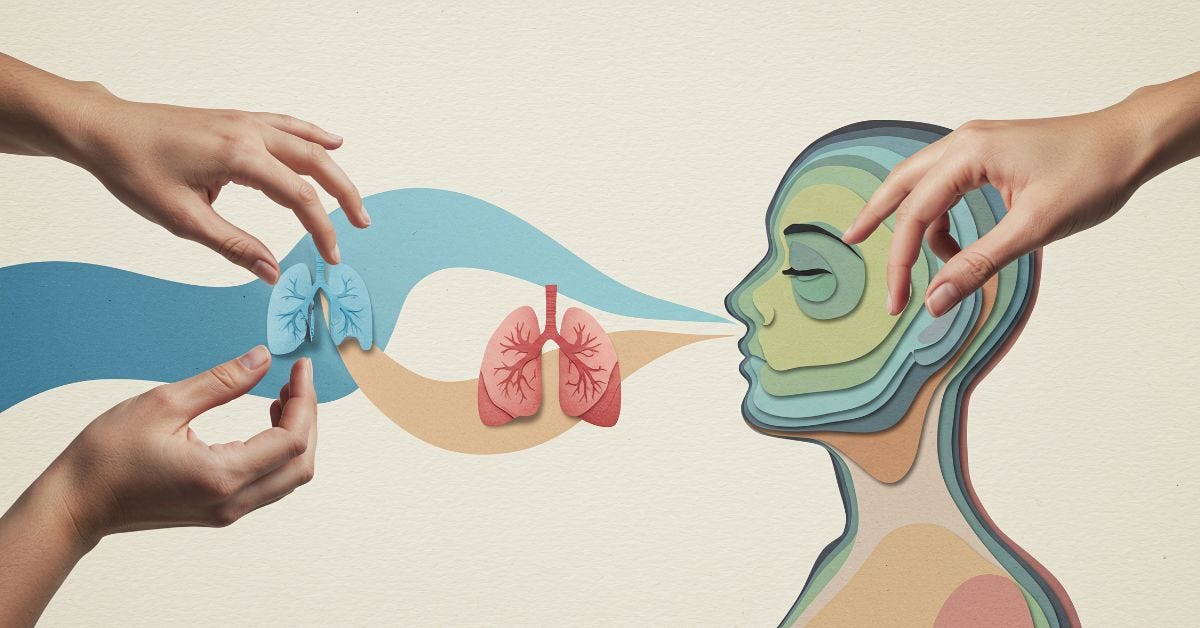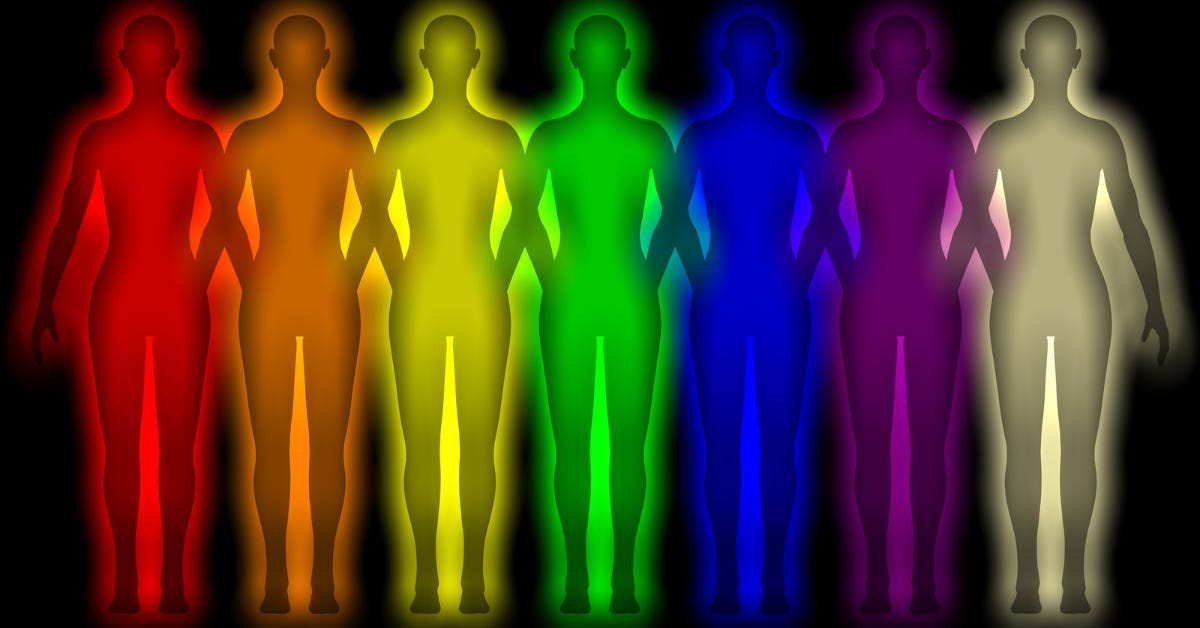Stress and The Spirit
Why the spirit is an important key to wellness and what happens when we ignore it in the midst of stress.
Hate it or love it, you are a spiritual being living a human experience. We can have all the spiritual conversations in the world and discuss topics concerning psychic gifts, aliens, and plant medicine, but at the end of the day, what matters is how we apply the knowledge gained to our day-to-day human existence. There are many people who can easily talk the talk, use all the spiritual lingo, and go deep into the philosophy of spirit, while their own spirit is barely functioning. As outsiders casually observing them, we would never know until “too much” stress comes along.
As a human, who is a composition of mind, body, and spirit, you will experience stress. The reasons and duration of each occurrence will vary; however, you should be aware of what this means for the state of wellness of the mind, body, and spirit. Let’s focus on the spirit today.
What is The Role of Spirit in Your Existence
As a society, we live in a world where the mind is presented as separate from the body. Within the past 10 years, I’ve seen more mainstream discussions around mind-body connections than ever. Modern healers, global indigenous communities, and people of ancient times were, and are, well aware of this; yet, our current society has pushed for the separation of the mind and body, and even ignored the spirit in discussions of wellness.
Mainstream wellness is changing rapidly, but if you are reading this right now, you likely enjoy learning a bit off the beaten path, and I’m grateful to have you here. I’m also grateful to all the people who impacted my spiritual development and journey. There was no “Yellow Brick Road” in sight. This was a trek fueled by brokenness, alignment, a strong desire to heal and learn, a craving for soul-level ascension, as well as a need to become a better person over time in this incarnation.
I was originally going to jump right into the role of spirit in your existence, and then I had to face the fact that it doesn’t make sense when explained on its own - just as addressing the mind and body alone don’t make sense once you realize how all three facets of our being work together. The mind and body need to be expounded upon for context
The mind represents your thoughts and intellect. The mind is the “what” of our existence—it processes information, solves problems, and creates our thoughts and beliefs. It’s a powerful tool, but without a purpose, it can feel lost or unfulfilled. Think of a high-performance computer. It can run complex programs, but it needs an operator to give it a task.
The body represents your physical self. The body is the “how” of our existence. It allows us to interact with the world through physical actions, sensations, and emotions. It’s the vehicle for our mind and spirit, but a body without a driving force or sense of direction is a body that simply exists.
The spirit represents your purpose. The spirit is the “why.” It’s the intrinsic force that gives the mind and body a reason to function. It provides a sense of purpose and a deeper connection to life, which is what allows a person to feel truly whole and fulfilled, rather than just being a collection of thoughts and physical actions. This is your life force. Treat it as such.
How Stress Impacts the Spirit
Stress is a natural part of every living creature’s life, and yet some of us endure more than others.
Stress Challenges Your Sense of Meaning and Purpose: Stress, particularly from major life crises, can lead to spiritual struggles by causing you to question your values, identity, and even the meaning of your life. It can make it difficult to feel a sense of purpose beyond the daily “rat race.”
Stress Fosters Feelings of Disconnection: Stress can cause you to feel isolated and alone, as it may lead to a withdrawal from social and community support systems. Your spirit craves a sense of connection to a higher power, nature, or a community, which can all be powerful solutions for stress.
Stress Reduces Your Sense of Inner Peace: Spirituality often involves practices like meditation, prayer, and movement that cultivate a sense of calm and inner stillness. Stress, on the other hand, creates a state of constant rushing and mental clutter, making it difficult to feel centered or find peace and quiet.
Stress Hindered by Stagnance Can Cause a Lack of Gratitude: Stress can make it difficult to let go of anger and fear. Spiritual practices that emphasize release and gratitude can help free the mind, body, and spirit of stagnant feelings and energy, while also helping you gain perspective, acceptance, and even intuitive insights into resolutions, which can reduce the impact of stressors.
Stress Chokes the “Life Force”: From a holistic perspective, stress is seen as a disruption of the natural flow of energy and coherence within the human system. Unresolved anger and fear “choke the human spirit,” or life force, which can then manifest as physical and mental health issues.
Addressing The Mind, Body, & Spirit in Session
As a Licensed Massage Therapist, whose foundations started in energy work 10 years prior to becoming a massage therapist, I can tell when physical pain is more than physical pain. As a part of my own ethics, I won’t speak on spiritual concerns if someone books a massage therapy session with me. However, there are times when certain patterns within the muscle fibers and levels of tension will prompt me to ask a client if they are experiencing increased or consistent levels of stress, which could potentially be an emotional, mental, or spiritual concern. This is why I created the Emotional Reset Massage, which includes a series of movements and breathwork techniques with the type of massage that aligns with the needs of your body on the day of your appointment.
My Reiki and Transformational Ceremonies are intense because they are addressing mind, body, and spirit within a three-hour session. When I first listed the session, people asked if it was too long, but in reality, sometimes it feels like the session isn’t long enough. The mind, body, and spirit are addressed in one session, and at some points, they are addressed simultaneously.
When some people see me, their sessions may be one of the few places they can unmask and be real about how they really feel. As I’ve watched people in various settings, it seems like a great deal of people operate under a glass ceiling of personality expectations that require them to dampen their spirit just to exist. They aren’t letting their spirit flow freely at home, work, at the golf course with the guys, or brunch with the ladies. Most encounters appear to be performative - even at their places of worship.
One of the biggest stressors people carry around is the fear of being judged or incorrectly perceived. The fear of judgment keeps the mask on. Some people never felt like home was a safe space growing up, so as they grow up and create new homes. They never cultivate or set a foundation for a safe space. So even if they pay all the bills or cook all the meals, some people continue to live as if they are looking over their shoulder for the sake of fitting in and keeping up appearances. People often wonder how, at the end of their friendships or romantic partnerships, they felt like they had never known the person they shared years, vacations, meals, and beds with - this is why - they were in some form of relationship with someone who was disconnected from their spirit in their presence.
As we get into the workplace, we soon learn that the work environment not only requires a mask, but one that is perfectly carved for the sake of survival within company culture. These workplace adjustments could mean anything from changing your diet for the better or worse, time away from yourself/family outside of work hours, and even excessive alcohol and drug use. There is nothing wrong with masking for survival. Masking becomes an issue when your spirit has nowhere to be fully attached to your mind and body.
Is the work or relationship mask consuming your time and identity? When do you have time to connect to:
Yourself?
Someone you trust?
Nature?
Community?
A place of worship?
A healthy person can connect to at least three out of the five options listed above within a one to three-month period.
Solutions for the Spirit
Clarify Your Values and Purpose: Taking time for self-reflection to understand what is truly meaningful in your life can help you focus on what’s important and let go of trivial stressors. When you live in alignment with your core values, you feel more authentic and purposeful, which helps build resilience. This may not be something you can accomplish within a day, week, or even a month, but leave the door open for consideration.
Foster Social and Community Connections: Loneliness and isolation are major contributors to spiritual stress. Actively nurturing relationships with friends, family, or community groups can provide a strong support network, a sense of belonging, and a source of joy and perspective. Please don’t look for people who are just like you. Look for alignment and support.
Cultivate Gratitude: Consciously practicing gratitude, such as keeping a gratitude journal or simply taking a moment to appreciate the good things in your life, can shift your perspective from what you lack to what you have. This practice helps to foster a sense of inner peace and can make stressors feel more manageable. If this is not easy for you, I encourage you to volunteer to put yourself in a position of service to see the world from a different angle.
Engage in Spiritual Practices: Prayer and meditation are very common spiritual practices. Some additional options to try are movement-based spiritual practices like Somatic Regulation, Yoga, or even ecstatic dance. A different way to approach meditation is chanting based on goals or healing a specific chakra. For these concerns, I would approach it on an individual basis; however, I will supply a list of good chant-based meditations below so that you can see if this practice is right for you.
Embrace Self-Compassion and Forgiveness: A spiritual struggle is often marked by self-criticism and an inability to let go of anger. Practicing self-compassion, accepting your imperfections, and forgiving yourself and others can be transformative. This frees up emotional energy that was previously consumed by resentment and judgment.
The Spirit and Relationships With The Self and Others
As the years go on, I continue to wonder how many amongst us are just collections of thoughts(mind) and physical actions(body) - playing the roles needed to be played to survive - existing with no purpose. For years, people have been scheduling time with me because of feelings of a deep ache in a place where they couldn’t pinpoint the location, a dull feeling of loss, and even a sense of being lost. In most cases, the connections between their spirits and their minds and bodies were not solid.
Imagine an eclectic cord that is frayed in the middle and hanging on by a few silver strands of wire with just enough spark to keep a connection. With a connection such as this, there are not enough strands of silver wires to allow for much more than collections of thoughts and physical actions. In the world of electricity, this type of connection is a fire hazard, and we’d be lucky if the device connected to the wire even worked.
To bring this closer to home, I can never judge a person by their material success. In my practice, when I come across people who are hanging on by figurative threads, they are generally successful in the mainstream sense. They have great careers and/or businesses, and everything that comes with that from a material perspective - the cars, homes, vacations, etc. So what are they disconnected from? They are initially disconnected from their spirit, and this leads to a series of relationships where they practice going through the motions and experiencing people without connecting with them. These people tend to be great at small talk, one-liners, and approach conversations as if they are solving puzzles.
There is nothing wrong with this in practice and as a way to get through the workday, but when this detached way of life becomes your existence, you are well into the danger zone. Everyone needs one person to truly connect with, even if it is just yourself. Connecting with yourself is having a unified mind, body, and spirit. A disconnect from the spirit is a malfunction of your entire system. Stress is a natural part of life, but when combined with the disconnect from your spirit, it can be the catalyst for burnouts, breakdowns, and that deep feeling of loss or being lost. Your being is mourning the loss of its connection to your spirit. What feels like pain and loss is a wakeup call to reconnect and dare I say…awaken.
Do you have times during your day or even week when you feel like you can truly be yourself, drop the masks? Are you able to safely vent about your stress without feeling judged? Do you have a safe space?










Thank you for this. I think since we are spiritual beings and can connect with our ancestors and the spiritual realm we take for granted when death occurs close to you it is still hurtful and stressful.
It’s almost like you aren’t allowed to grieve because you can connect later. That leads to anxiety and stress.
Thank you for reminding me it’s ok.